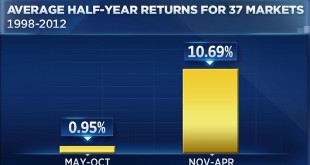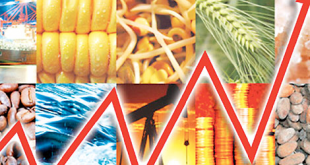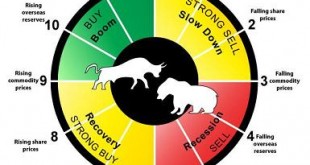… is an often quoted stockmarket adage these days. It’s based on the historical underperformance of stocks in the 6 months from May until the end of October, compared to the period from early November to the end of April. The significant seasonal trading pattern is a fact, based on data from the Stock Trader’s Almanac. Since 1950, the Dow …
Read More »Tag Archives: trading
Commodity Traders – Winners & Losers
If you drive from the city of Geneva along the shore of Lake Geneva, you will first pass by the UEFA-headquaters in Nyon and soon after reach a place called Lausanne. It’s a nice swiss city with just 130’000 inhabitants, but worldwide known because Lausanne hosts the global headquaters of over 50 sport-associations from equestrian or hockey to fencing and …
Read More »Stocks – How It All Started
In today’s financial markets, billions of shares are traded every day. The biggest exchanges by volume are New York, Tokyo and London, but through electronic trading, shares are bought and sold around the world around the clock. Chinese philosopher LaoTse didn’t know about stock trading, he lived in the 5th century BC. But he did know ‘that even the longest …
Read More »Capitulation & Comeback
A bear market, as described in the previous chapter, is something any investor could renounce. But they know, they have to get through. It’s just like making it through a sunless November without getting depressed. In some stock market-cycles of the past, the bear market faded out fairly quiet, no one got killed, and stocks started to recover. But many …
Read More »Calendar & Trends
Many participants of the stock-market, in general pretty rational fellows, are paying a great deal of attention to seasonal or calendar trends. One of the best known trading adage is appearing each year towards the end of April: • ‘Sell in May and go away’ followed by • ‘Remember to come back in September‘. The rationale behind is to avoid …
Read More » TheLeader Business, Economy, Stock Market, Management
TheLeader Business, Economy, Stock Market, Management





